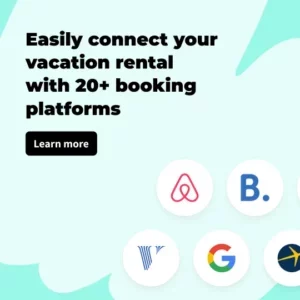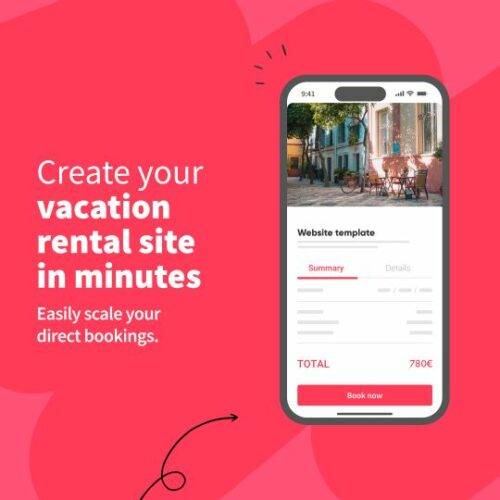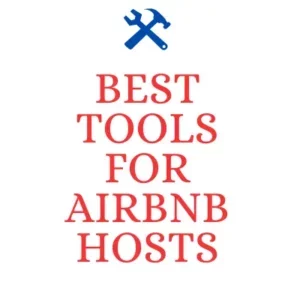
I. Introduction
When it comes to Airbnb, hosts often wonder about the income potential of renting out their properties. Whether you’re considering becoming a host or you’re already one and seeking to optimize your earnings, understanding the average Airbnb income is essential.
In this comprehensive guide, we’ll delve into various factors that influence your potential earnings and provide you with insights on how to maximize your income as an Airbnb host.
II. Factors Influencing Airbnb Income
A. Location Matters
1. Impact of City or Region
Airbnb income potential is significantly influenced by the location of your property. Let’s explore this further with examples:
In bustling cities like New York, London, or Tokyo, Airbnb hosts often enjoy higher income due to a constant influx of tourists and business travelers. The demand for accommodations in such urban hubs remains consistently high.
Conversely, in smaller towns or less frequented regions, the demand might be lower, affecting potential income. However, rural and less touristy areas can still attract travelers seeking unique experiences.
Airbnb hosts in popular tourist destinations, like beach resorts or ski towns, often experience seasonal income variations. They earn more during peak vacation seasons and less during off-peak times.
2. Urban vs. Rural Settings
Urban settings typically yield higher income due to increased demand. However, hosts in rural or suburban areas should focus on marketing their properties as peaceful getaways, appealing to travelers seeking a break from city life.
For example, hosts in the suburbs surrounding major cities such as Los Angeles can capitalize on offering quieter accommodations while remaining close to urban attractions. They can emphasize the convenience of accessing the city.
3. Proximity to Tourist Attractions
The proximity of your property to popular tourist attractions can significantly impact income. Hosts near landmarks, museums, or entertainment districts can charge higher rates due to their convenient location.
For instance, an Airbnb listing located within walking distance of the Eiffel Tower in Paris can command premium prices compared to properties farther away.
B. Property Type and Size
1. Different Income Potentials
Let’s explore the income potential of different property types in more detail:
Entire Homes: Entire homes often generate the highest income as they offer privacy and full amenities. They are ideal for families or groups of friends traveling together.
Private Rooms: Private rooms can provide a steady income, especially in urban areas. Travelers seeking a budget-friendly option or a local experience often choose private rooms.
Shared Spaces: Shared spaces can be cost-effective for both hosts and guests. However, they usually yield the lowest income. Hosts must prioritize clear communication to ensure a positive guest experience.
2. The Significance of Property Size
Larger properties with more bedrooms and living space can accommodate more guests. As a result, they often have the potential to earn higher income.
For example, a spacious villa with a pool in a tourist destination can attract larger groups of travelers, allowing hosts to charge premium rates.

III. Researching Airbnb Income Potential
A. Utilizing Airbnb Data
1. Accessing Airbnb’s Income Estimator Tool
Airbnb provides hosts with tools like the Income Estimator to predict potential earnings based on property details and location. Let’s discuss how hosts can use this tool effectively.
Provide step-by-step guidance on using the Income Estimator, including inputting property details, setting rates, and interpreting the results.
2. Analyzing Historical Listing Data
In this section, elaborate on how hosts can research historical listing data to gain insights into income trends. Explain where hosts can find this data and how to interpret it.
Share examples of hosts who have successfully used historical data to optimize their pricing strategies.
B. Local Comparisons
1. Researching Income Trends in Your Specific Area
Hosts should delve into income trends specific to their neighborhood or city. Explain how they can access this information through Airbnb and other online resources.
Provide examples of hosts who have adapted their strategies based on local income trends.
2. How to Identify High-Demand Periods
Discuss how hosts can identify high-demand periods in their area, such as local festivals, conventions, or major events. Offer tips on adjusting pricing strategies accordingly.
Provide real-life examples of hosts who have maximized income during peak periods.

IV. Maximizing Airbnb Income
A. Property Listing Optimization
1. High-Quality Photos and Descriptions
Stress the importance of high-quality photos that showcase the property’s best features. Encourage hosts to invest in professional photography if possible.
Provide tips on writing compelling property descriptions. Hosts should highlight unique aspects of their listing and create an inviting narrative for potential guests.
Offer examples of before-and-after listing improvements, emphasizing how professional photos and enhanced descriptions can increase booking inquiries.
2. Competitive Pricing Strategies
Explain pricing strategies that hosts can employ to attract guests while maximizing income. These include:
Dynamic Pricing: Utilizing Airbnb’s Smart Pricing or third-party dynamic pricing tools to adjust rates based on demand, events, and seasonality.
Length of Stay Discounts: Encouraging longer bookings by offering discounts for extended stays.
Last-Minute Discounts: Providing discounts for last-minute bookings to fill vacant nights.
Weekend Premiums: Charging slightly higher rates for weekends and holidays.
Share real-life success stories of hosts who optimized their pricing and saw significant income increases.
B. Exceptional Guest Experience
1. Prompt and Professional Communication
Emphasize the importance of timely responses to guest inquiries and messages. Hosts should maintain open and professional communication throughout the booking process.
Share examples of hosts who received positive reviews specifically mentioning their communication skills.
2. Impeccable Cleanliness and Maintenance
Highlight the significance of cleanliness and property maintenance. Hosts should ensure their property is spotless and in good condition for every guest.
Provide a checklist for hosts to follow when preparing their property for guests.
Share success stories of hosts who improved their property’s cleanliness and maintenance, resulting in higher ratings and income.
C. Positive Guest Reviews
1. Encouraging Reviews
Explain the importance of guest reviews in attracting future bookings. Hosts should encourage guests to leave reviews after their stay.
Offer tips on how to politely request reviews and provide excellent service to increase the likelihood of positive feedback.
Share examples of hosts who effectively encouraged reviews and saw their booking inquiries rise.
2. Managing Negative Reviews
Address the issue of negative reviews and how hosts should respond professionally and constructively. Encourage hosts to use negative feedback as an opportunity to improve.
Provide examples of hosts who successfully addressed negative reviews and turned them into positive experiences.
V. Tax Considerations and Financial Planning
A. Tax Implications
1. Understanding Local Regulations
Stress the importance of hosts understanding local regulations and tax requirements related to short-term rentals. Encourage hosts to research and comply with local laws.
Provide links to Airbnb’s resources on tax information for hosts.
2. Keeping Financial Records
Advise hosts to maintain detailed financial records related to their Airbnb income and expenses. This will be essential for accurate tax reporting.
Offer suggestions for organizing financial records and using accounting software if necessary.
B. Financial Planning
1. Budgeting and Savings
Discuss the idea of budgeting a portion of Airbnb income for property maintenance, upgrades, and taxes. Hosts should also consider saving for future investments or emergencies.
Share insights from hosts who have successfully managed their Airbnb income through effective budgeting.
2. Consulting a Financial Advisor
Suggest that hosts consult with a financial advisor or tax professional to ensure they are optimizing their Airbnb income and complying with tax laws.
Provide information on how to find a qualified financial advisor with expertise in short-term rentals.

VI. Challenges and Considerations
A. Legal and Regulatory
Factors Navigating Local Regulations: Different cities and regions have various regulations governing short-term rentals, including zoning laws, licensing requirements, and occupancy limits. Hosts should be aware of and comply with local laws to avoid potential legal issues and fines.
Tax Implications: Earning income from Airbnb may have tax implications, and hosts should be prepared to report their earnings to tax authorities. It’s essential to explain the potential tax consequences of Airbnb income and advise hosts to consult with tax professionals to ensure they are in compliance with tax laws.
B. Competition Dealing with an Increasing Number of Airbnb Hosts:
The Airbnb hosting landscape is becoming increasingly competitive, with more hosts vying for guests’ attention. To succeed in this environment, hosts need to understand how to differentiate themselves from the competition.
Staying Competitive in a Crowded Market: To stay competitive, hosts can employ various strategies, such as:
Unique Amenities: Offer unique amenities or experiences that set your listing apart from others. For example, providing bicycles for guests to explore the area or offering personalized guided tours can attract more bookings.
Pricing Strategies: Adjust pricing strategies to remain competitive during peak seasons or local events. Consider dynamic pricing tools that can help you maximize income during high-demand periods.
Exceptional Guest Service: Providing exceptional guest experiences can lead to positive reviews and repeat bookings. Respond promptly to guest inquiries and address their needs during their stay.
VII. Real-Life Airbnb Success Stories
A. Highlighting Successful Hosts and Their Income Journeys Share Anecdotes: Share real-life stories of Airbnb hosts who have achieved significant income through their listings. Highlight their unique strategies, challenges they faced, and experiences that contributed to their success.
Inspiration for Aspiring Hosts: These success stories serve as inspiration for aspiring hosts, demonstrating the earning potential of Airbnb. They also provide valuable insights and actionable tips that can help new hosts kickstart their own income-generating journey on Airbnb.
VIII. Conclusion
In conclusion, understanding the average Airbnb income and the factors that influence it is essential for both new and experienced hosts. By considering your property’s location, type, and size, as well as adopting effective pricing and hosting strategies, you can maximize your income potential.
However, it’s crucial to be mindful of legal considerations and the competitive landscape in your area. With dedication and smart hosting practices, you can make the most of your Airbnb hosting experience and achieve your income goals.
You may also like to read;
From Airbnb Superhost to Guest Favorite Badge: Leveraging the Airbnb Reward System










